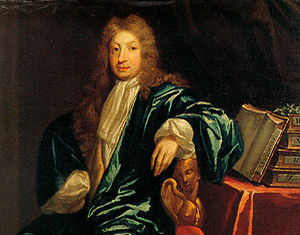
Though Warren Chernaik argues that Aphra Behn’s
Oroonoko is anti-slavery, I would
counter-argue that Behn’s portrayal of Africans de-humanizes them as much as a
pro-slavery stance. Oroonoko’s extreme solution towards the fate of Imoinda
could not have been well received by the Christian audience of 17
th
century England, however, if the audience already had a mindset stereotyping
Africans or savages, Oroonoko’s actions would have seemed justified. Therefore,
Behn’s portrayal would only serve as reinforcement to these stereotypes. Behn’s
acknowledgement of Oroonoko’s beauty is based entirely on Oroonoko’s physical characteristics
that mirror the ideal values of a fellow Briton. In a way Behn is implying that
she and those of her race, are suited in determining the worth of others. In
eschewing Oroonoko original name, giving him the name of Caesar, and then
referring to him as such throughout the rest of the narrative, shows cultural belittlement. Perhaps in the narrative, Oroonoko was called Caesar by his masters but Behn could have
continued referring to him as Oroonoko, showing her disagreement with the
imposition of Western culture over those brought into it by force. It is through this name-changing that Oroonoko is no longer Oroonoko, but a mannequin painted black for the purpose of telling a Romantic tale. It is not the average slave but royalty that foments the rebellion. If not for this royal mannequin, would the regular slaves never had gathered the courage to rebel? In my opinion, this reliance on Oroonoko as catalyst for revolution was detrimental to the overall image of Africans. So only he who most resembled the Europeans could stand a chance against them? This post is not a complete dismissal of Aphra Behn's work. Her friendship to staunch critics of slavery implies her leanings on the matter, however, in writing a work in which the protagonist is racially different from oneself, I find it better that someone of that race write it than someone who can only glean a shadow of those hardships.
 Though Warren Chernaik argues that Aphra Behn’s Oroonoko is anti-slavery, I would
counter-argue that Behn’s portrayal of Africans de-humanizes them as much as a
pro-slavery stance. Oroonoko’s extreme solution towards the fate of Imoinda
could not have been well received by the Christian audience of 17th
century England, however, if the audience already had a mindset stereotyping
Africans or savages, Oroonoko’s actions would have seemed justified. Therefore,
Behn’s portrayal would only serve as reinforcement to these stereotypes. Behn’s
acknowledgement of Oroonoko’s beauty is based entirely on Oroonoko’s physical characteristics
that mirror the ideal values of a fellow Briton. In a way Behn is implying that
she and those of her race, are suited in determining the worth of others. In
eschewing Oroonoko original name, giving him the name of Caesar, and then
referring to him as such throughout the rest of the narrative, shows cultural belittlement. Perhaps in the narrative, Oroonoko was called Caesar by his masters but Behn could have
continued referring to him as Oroonoko, showing her disagreement with the
imposition of Western culture over those brought into it by force. It is through this name-changing that Oroonoko is no longer Oroonoko, but a mannequin painted black for the purpose of telling a Romantic tale. It is not the average slave but royalty that foments the rebellion. If not for this royal mannequin, would the regular slaves never had gathered the courage to rebel? In my opinion, this reliance on Oroonoko as catalyst for revolution was detrimental to the overall image of Africans. So only he who most resembled the Europeans could stand a chance against them? This post is not a complete dismissal of Aphra Behn's work. Her friendship to staunch critics of slavery implies her leanings on the matter, however, in writing a work in which the protagonist is racially different from oneself, I find it better that someone of that race write it than someone who can only glean a shadow of those hardships.
Though Warren Chernaik argues that Aphra Behn’s Oroonoko is anti-slavery, I would
counter-argue that Behn’s portrayal of Africans de-humanizes them as much as a
pro-slavery stance. Oroonoko’s extreme solution towards the fate of Imoinda
could not have been well received by the Christian audience of 17th
century England, however, if the audience already had a mindset stereotyping
Africans or savages, Oroonoko’s actions would have seemed justified. Therefore,
Behn’s portrayal would only serve as reinforcement to these stereotypes. Behn’s
acknowledgement of Oroonoko’s beauty is based entirely on Oroonoko’s physical characteristics
that mirror the ideal values of a fellow Briton. In a way Behn is implying that
she and those of her race, are suited in determining the worth of others. In
eschewing Oroonoko original name, giving him the name of Caesar, and then
referring to him as such throughout the rest of the narrative, shows cultural belittlement. Perhaps in the narrative, Oroonoko was called Caesar by his masters but Behn could have
continued referring to him as Oroonoko, showing her disagreement with the
imposition of Western culture over those brought into it by force. It is through this name-changing that Oroonoko is no longer Oroonoko, but a mannequin painted black for the purpose of telling a Romantic tale. It is not the average slave but royalty that foments the rebellion. If not for this royal mannequin, would the regular slaves never had gathered the courage to rebel? In my opinion, this reliance on Oroonoko as catalyst for revolution was detrimental to the overall image of Africans. So only he who most resembled the Europeans could stand a chance against them? This post is not a complete dismissal of Aphra Behn's work. Her friendship to staunch critics of slavery implies her leanings on the matter, however, in writing a work in which the protagonist is racially different from oneself, I find it better that someone of that race write it than someone who can only glean a shadow of those hardships.

Comments
Post a Comment